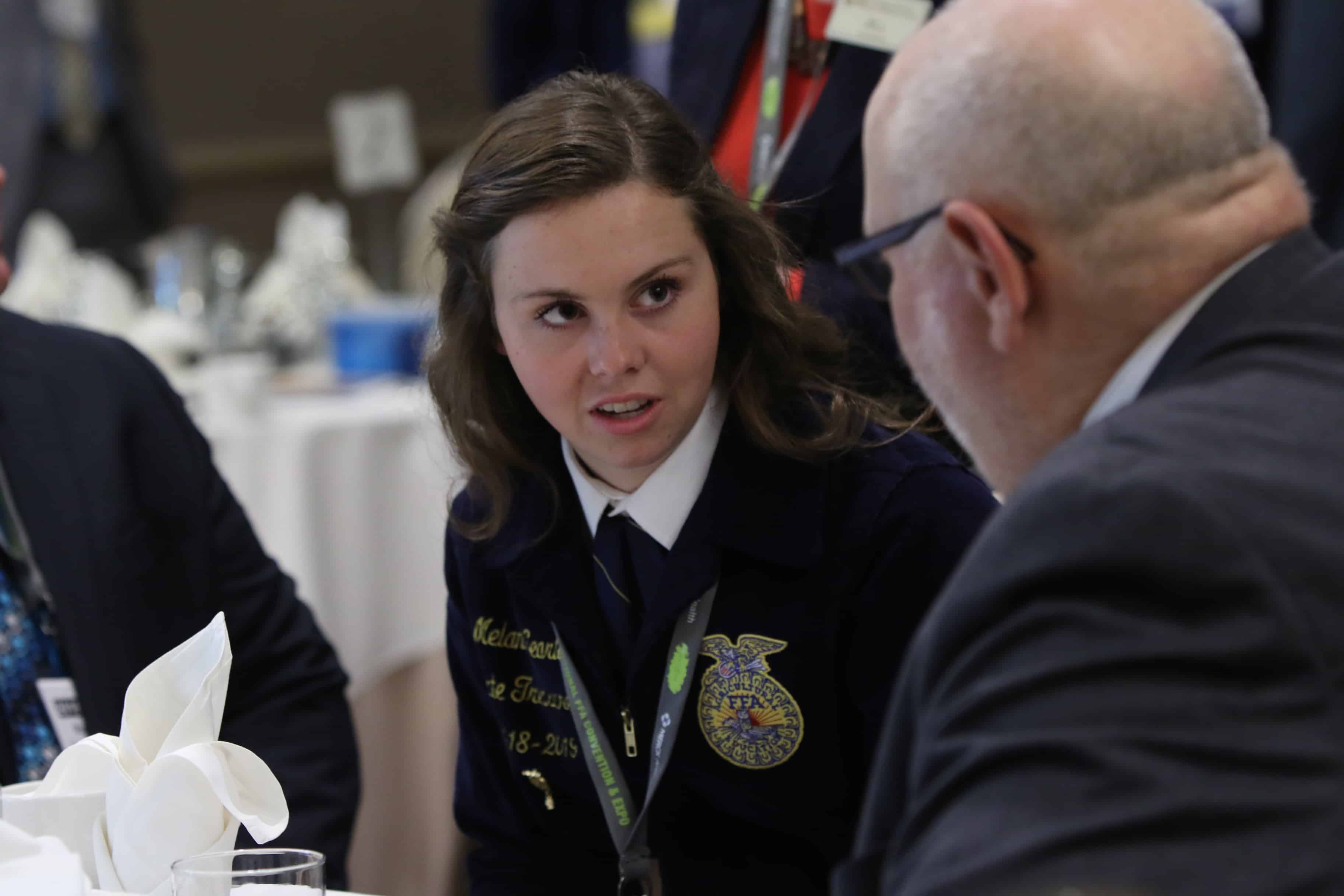A diverse group of industry leaders, agriculture educators, and FFA officers gathered during the 91st National FFA Convention & Expo to discuss sustainability and how FFA fits into the picture as agriculture moves forward.
The National FFA Organization organized the sustainability event to discuss what new educational materials and focuses should be developed as FFA seeks to equip students as leaders and for careers in all sectors of agriculture.
Several representatives shared their company’s sustainability goals and philosophies as examples.
A small group discussion brought many diverse ideas of what changes could be made to ensure a solid future for agriculture. Key points were identified, including the fact that sustainability does not exist by itself — it needs to be an integral part of every aspect of agriculture — from research to production to when the products reach the consumer.
From an educational perspective, attendees suggested incorporating sustainability into agricultural education, career and leadership development events, and helping students and educators focus on sustainability literacy and practical applications.
Kayla Kaalberg, a current Iowa State University senior and 2015-16 Iowa state secretary, attended the event. In her college studies, she has focused on sustainability and has defined it for herself.
“For me, it’s really about protecting not only our environment but our livelihoods,” Kaalberg said. “Creating an environment that’s better than what we live in.”
To wrap up the event, Brentley Odom gave his perspective as a young person passionate about sustainable agriculture. He is the southern region president in Georgia FFA and was named the national proficiency winner in environmental science and natural resources. He highlighted the importance of each individual and each company in the goal of developing a better future.
“You can see where we’re headed, and it’s people just like you in this room today that’s trying to spark this passion, that’s trying to spark this impact of what we want to be, of what we want to become,” Odom said. “We want to be the sustainable agriculture, not for this generation but for the next generation and the generations after that.”
“Every person can make a difference, and there’s not just one aspect of agriculture — there is all aspects of agriculture, and everyone, just one, can make a difference,” Odom added. “And as long as we can work together and as long as we can have a sustainable program, we can have sustainable agriculture.”












